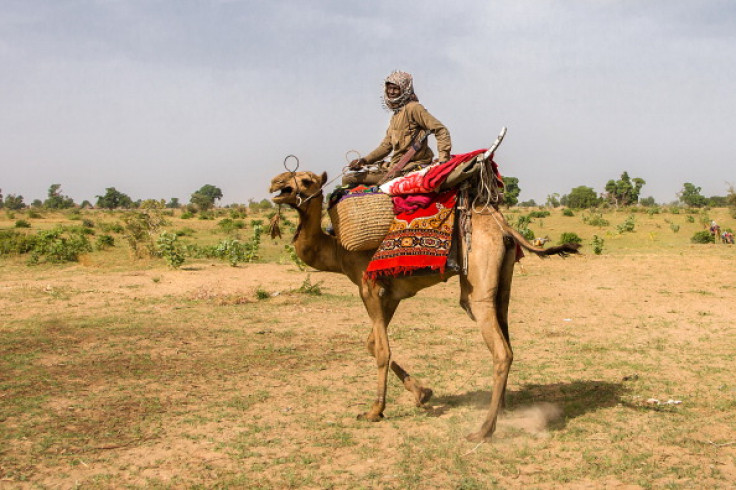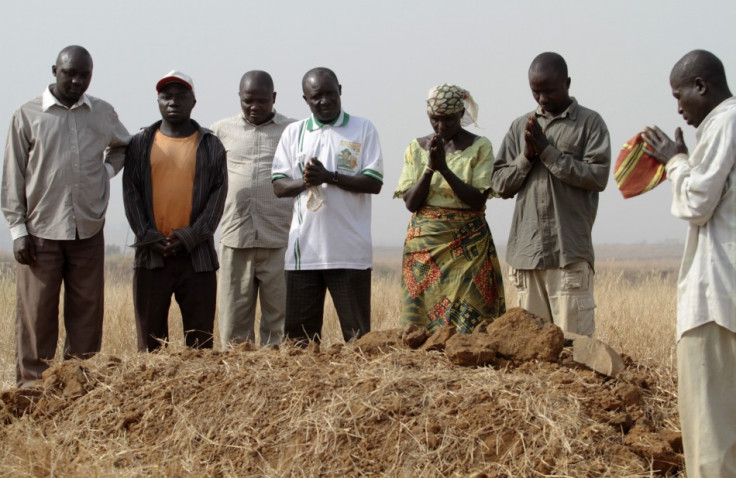Nigeria Fulani militants: Who are the Muslim herdsmen linked to Boko Haram?

A Nigerian senator has urged herdsmen from the Fulani ethnic group to stop carrying out attacks on communities across Nigeria. During an address to the Fulani community in Kaduna state, Shehu Sani stressed that the Fulani were peaceful people and warned that a few members of the community were sending a "wrong message about the true nature of the typical Fulanis", Pulse Nigeria reported.
As attacks attributed to Fulani militants are on the rise in Nigeria, IBtimes UK looks at the history of the Fulani people in Nigeria and the motives behind their attacks.
Fulani's history in Nigeria
Who are the Fulani people?
People from the 20 million-strong Fulani – or Fula or Fulbe – ethnic group are present in several African countries, including Nigeria, Central African Republic (CAR), Cameroon, Mali and Egypt.
The Fulani are mainly herdsmen and constitute the world's largest nomadic group. Fulani people are predominantly Muslim and their society is structured in different casts, which may vary from country to country. They speak Fula language as well as Hausa, English, French and Arabic.
They follow a code of conduct known as "pulaaku". Taught to children by their parents and village leaders, this code is based on several principles including patience, prudence, self-control, discipline, courage and modesty.
In Nigeria, the Fulani are about seven million and live in the country's northeast and middle belt. Since the Fulani jihad war – fought in present-day Nigeria and Cameroon between 1804 and 1808 – the ethnic group has often been associated with the Hausa people, given the common history shared by both ethnicities. However, many Fulani oppose to the use of the 'Hausa-Fulani' term.
The Fulani jihad war started when well-known Islamic scholar Usman dan Fodio was exiled by the then King Yunfa from the Gobir city-state, founded by the Hausa. In response, Fodio assembled an army aimed at taking control of territories.
The war resulted in the killing of Yunfa and the creation of the Sokoto Empire, which included several states and cities of modern-day central and northern Nigeria, such as Gombe, Adamawa and Abuja. Though the empire was abolished in 1903, during British colonisation, the position of sultan has been retained to present day and the titular head still holds considerable influence among the Muslim population.
Reasons behind attacks
Fulani militants are believed to carry out attacks mainly in Nigeria and CAR. In Nigeria, they mainly operate in the middle belt and attack primarily private citizens to gain control of grazing lands. At least 1,229 people were killed in suspected attacks by the Fulani militants in Nigeria in 2014.
"Fulani herders and farmers are in constant violent conflict over herdsmen's increased need for access to grazing lands against the expansion of farmland by farmers into corridors traditionally used by the Fulani," according to the Terrorism Research & Analysis Consortium (Trac). "Farmers accuse the Fulani herders of allowing their animals to feed on still-growing crops, and contamination of community watering-places. The Fulani herders in turn accuse the farmers of denying them access to grazing areas when alternatives cannot be found," Trac said.

Fulani herdsmen and Boko Haram
In 2015, a report by the Global Terrorism Index (GTI) described the militants as the fourth deadliest known terrorist group and warned attacks attributed to them were on the rise in Nigeria . The report also claimed there was a link between the Fulani militants and Boko Haram terror group, which has killed at least 20,000 people in northeastern Nigeria and neighbouring countries since 2009.
David Otto, CEO of UK-based global security provider TGS Intelligence Consultants, told IBTimes UK there are fears the violence based on land control might escalate into a religious conflict which could be used by Boko Haram to its own advantage.
"As land degradation increases in the Far North, Fulani people have been moving downwards towards the middle belt, which provides vast grazing land for this nomads. However, this area is dominated by Christians or non-religious farmers who equally depend on this vast land for agriculture. This scenario has resulted in massive casualties on both sides for generations," he explained.
"Ground report shows that these Hausa Fulani herdsmen are well armed and carry out coordinated attacks against local farmers. The danger is that such conflicts can easily be infiltrated by Salafi Jihadist Boko Haram terrorists or even organised crime groups who see it as an opportunity in chaos. The government has been slow to act on these ethnic clashes – seen as local skirmishes that had no national security threat – but this could become a serious security menace to the region."
Otto added that tensions are further increased by claims from pro-Biafran secessionist groups that herdsmen are targeting Christians and southerners in a bid to "Islamise the Christian-dominated region".
Nigeria up close: Check out our Flipboard magazine
© Copyright IBTimes 2024. All rights reserved.






